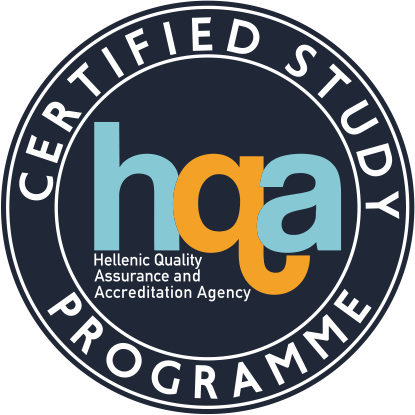Health Education
Undergraduate level | 2nd semester | Compulsory Unit | ΙΑ0600
Credit Units ECTS: 5
Teaching Hours Weekly: 3
Course Type: General Knowledge
Prequisites: --
Teaching and Examination Language: Greek
For Erasmus students study course and exams are offered in English.

Course Material
Health education and disease prevention, Nutrition epidemiology and chronic degenerative diseases, Smoking, Alcohol, Dental Health, Personal Hygiene, First Aid, Food Safety, Exposure in toxic substances, Sexually transmitted diseases, Stress/ Anxiety, Insufficient sleep, Medications and Drugs, Health Education in Schools.
Learning Outcomes
The purpose of the module is enhance the understating of the importance of promoting and maintaining optimum psychosomatic health, social wellbeing and quality of life. Emphasis will be given on issues regarding current important public health issues in Greece and worldwide. Food safety, nutrition education, sexually transmitted diseases, dental health, smoking & alcohol, anxiety disorders will be also be covered in this unit. By successfully completed the module the students will:
- be familiar with the basic concepts and definitions of Health Education and acquire a thorough understating of the relationships between lifestyle, environmental and nutritional factors, with psychosomatic heath
- have developed specific learning skills in the design, application and evaluation of health education programmes, in the school environment.
General Skills
- Autonomous work
- Group work
- Planning and managing small projects
- Be critical and self-critical
- Promotion of creative & inductive thinking
- Searching, analyzing, and composing data and evidence through the use of necessary information.
Learning and Teaching Techniques - Evaluation
Teaching Methods: Face to face
Use of ICT: Use of ICTs during teaching, use of asynchronous tele-education platform for distant education and communication with postgraduate students, contact through e-mail.
Course Organization:
| Activity | Semester Work Load |
|---|---|
| Lectures | 33 |
| Small group exercises in the classroom | 6 |
| Individual/non-guided studying | 76 |
| Bibliography studying and analyzing (both in Greek and in the English Language) | 10 |
| Total | 125 |
Assessment Methods:
The unit grade will be based on a final written exam (consisting of multiple choice and essay type questions). The assessment method is described to the students during the first teacher-student meeting, and it is displayed in the e-class website throughout the semester.
Suggested literature
- Webb GP (2002) Nutrition: A Health Promotion Approach, 2nd edition, ARNOLD
- Vetter N & Matthews I (1999), Epidemiology & Public Health Medicine, Churchill Livingstone
- Τριχοπούλου, Α. (2007). Προληπτική Ιατρική, Εκδόσεις Παρισιάνου, Αθήνα.
- Τούντας, Ι. (2009). Κοινωνία και Υγεία, 5η έκδοση, Εκδόσεις Βιβλιοπόλις ΑΕΒΕ.
- Αθανασίου, Κ. (2007). Αγωγή Υγείας, 3ηέκδοση, Εκδόσεις Γρηγόρη Χριστίνα και ΣΙΑ.
- Μανιός, Ι. (2007). Διατροφική Αγωγή. Από τη Θεωρία στην Πράξη, Εκδόσεις Π. Χ. Πασχαλίδης.
- Δαρβίρη, Χ. (2007). Προαγωγή της Υγείας, BROKEN HILL PUBLISHERS LTD.
- Τρυπόπουλος, Δ., Πετρίδου, Ε., Καλαποθάκη, Β. (2000). Προληπτική Ιατρική και Δημόσια Υγεία, Κ. & Γ. ΤΖΕΡΜΠΙΝΗΣ Ο.Ε
Relevant scientific journals:
- Public Health Nutrition
- Journal of Adolescent Health
- Journal of Nutrition Education & Behavior
- Health Education



